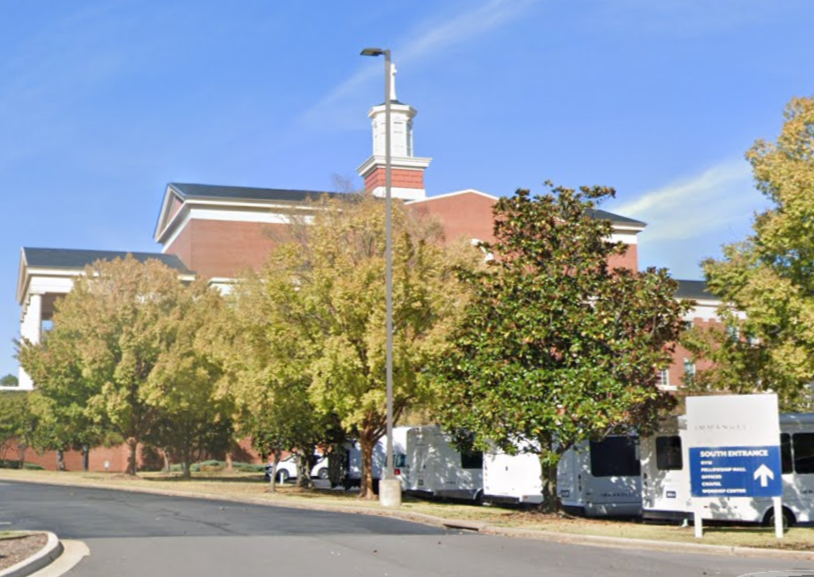
A former youth music ministry leader at Immanuel Baptist Church in Little Rock has entered a no-contest plea to a charge of second-degree sexual assault, according to KATV. Reagan Danielle Gray, 26, was sentenced on Monday to six years of probation, a $1,000 fine, and mandatory registration as a sex offender. The charge stems from allegations that Gray groomed and sexually assaulted a 15-year-old boy while leading the church's youth music ministry at Immanuel Baptist Church located at 501 N Shackleford Rd, Little Rock, AR 72211, a role she held when she was 23 years old.
Court records reveal that the abuse spanned from 2020 to 2021. Initially charged with first and fourth-degree sexual assault, Gray's charges were reduced as part of a prosecutorial agreement. In addition to her probation, she has been ordered to submit a DNA sample, avoid any contact with the victim, and comply with sex offender registration requirements.
The case came to light when the victim's parents discovered inappropriate text and Snapchat messages between Gray and their son. These messages, described as "highly inappropriate" in court documents, were reported to church leadership. Investigations uncovered that Gray had sexually assaulted the victim on multiple occasions.
Immanuel Baptist Church's internal handling of the case has raised significant concerns. After the initial allegations surfaced, Gray was removed from her ministry role and required to attend counseling. However, she was later permitted to return to the church—a decision now under intense scrutiny as the church faces ongoing lawsuits accusing it of covering up abuse.
According to testimony, the church's Safe Sanctuary Committee is tasked with reviewing abuse allegations against staff or volunteers and determining whether they may continue their church involvement. Critics have pointed to this process as inadequate, particularly in light of further allegations involving other church staff.
In addition to Gray's case, Immanuel Baptist Church is named in two lawsuits alleging a pattern of mishandling abuse allegations. One of these suits includes Gray, while the second centers on Assistant Children's Minister Patrick Stephen Miller, who faces charges of second-degree sexual assault and kidnapping. Miller, accused of abusing children on church grounds and grooming daughters of church deacons, has pled not guilty.
The church's leadership has not yet publicly commented on the mounting legal challenges or its internal policies for addressing abuse allegations.

When allegations of sexual abuse arise within trusted institutions like churches, the impact on victims can be profound, leaving many unsure of their rights or how to move forward. In the aftermath of recent accusations involving church leaders, Arkansas attorney Joshua Gillespie shares his perspective on the legal steps available for survivors. His expertise sheds light on how victims can seek accountability and navigate the challenges of confronting both their abuser and the institutions involved.
Darla Medina (Editor): For survivors sexually abused by a church youth group leader, what legal avenues are available to them?
Joshua Gillespie (Attorney): Victims of abuse in these circumstances, particularly within a church setting, have both criminal and civil legal options. On the criminal side, reporting to law enforcement is vital for initiating an investigation and holding the abuser accountable under the law. In parallel, victims can pursue civil lawsuits against both the perpetrator and, in many cases, the institution—if it's proven that the church failed to protect them or knowingly allowed the abuse to continue.
Medina: When it comes to holding the institution accountable, what does that process look like?
Gillespie: It often involves demonstrating negligence or complicity. For instance, if the church had prior knowledge of misconduct or failed to establish and enforce adequate safeguarding policies, they could face liability. This is particularly relevant if there’s a pattern of abuse or a history of mishandling such cases, as we've seen with the lawsuits involving Immanuel Baptist Church.
Medina: What challenges do victims typically face when pursuing these cases?
Gillespie: The emotional toll is significant, as revisiting traumatic experiences can be overwhelming. Additionally, institutions may have resources to mount a strong defense, making the process intimidating for survivors. However, with the support of experienced legal counsel and advocacy groups, victims can navigate these challenges and work toward justice.
Medina: Are there time limits for victims to take legal action?
Gillespie: Yes, statutes of limitations vary depending on the jurisdiction and the type of case. Arkansas has recently extended the time frame for victims of child sexual abuse to file lawsuits, giving survivors more time to come forward. This change reflects a broader recognition of the lasting impact of abuse and the time it can take for individuals to feel ready to act.
Families affected by sexual abuse within church communities often face overwhelming questions about what to do next. You don’t have to navigate this journey alone. If your child has been harmed by a church leader, contact us today for a free consultation. Together, we can explore your legal options and work to ensure accountability for those responsible.
 info@legalherald.com
info@legalherald.com